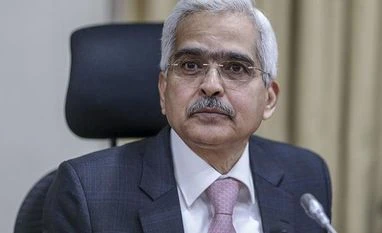India’s financial system is maturing and economic growth is on the mend, but the pandemic has asymmetrically affected the population, which must be bridged for sustainable, and inclusive growth, Reserve Bank of India (RBI) governor Shaktikanta Das said on Wednesday.
The RBI governor also lauded the government’s Production Linked Incentive (PLI) scheme for manufacturing, which has enabled India to be the "home to almost all the leading global mobile phone manufacturers,” leading the country to turn from being an importer to an exporter of mobile phones.
“This trend is likely to spill over to other sectors also," he said, adding global players would help enhance India’s share in the Global Value Chain (GVC) and will help build a resilient supply chain network. Such greater GVC participation would enhance the competitiveness of India’s large and Micro, Small and Medium Enterprise (MSME) supplier base, the RBI governor said.
However, it is necessary that the sectors and companies which benefit from this scheme “utilise this opportunity to further improve their efficiency and competitiveness. In other words, the gains from the scheme should be durable and not one off,” the RBI governor said.
He was delivering his keynote address at the National Management Convention of the All India Management Association (AIMA).
"India’s financial system has transformed rapidly to support the growing needs of the economy," the RBI governor said.
Banks traditionally have been the primary channels of credit in the economy, but non-bank funding channels have opened up. Assets of NBFCs and mutual funds are growing, and funding through corporate bonds is increasing.
“This is a sign of a steadily maturing financial system–moving from a bank-dominated financial system to a hybrid one," governor Das said.
However, the governor sounded warning bells about the rising inequality brought forward by the pandemic in the country.
“History shows that the impact of pandemics, unlike financial and banking crises, could be a lot more asymmetric by affecting the vulnerable segments more. The COVID-19 pandemic is no exception," he said.
Das termed the pandemic as a watershed event of the present era, causing widespread devastation of life and livelihood and it is still haunting the global economy in several ways. “There are very few parallels of a shock like COVID-19 in history which left policymakers with no template to navigate through the crisis.”
The pandemic has affected the contact-intensive service sectors, which employ a large number of informal, low-skilled and low-wage workers, the hardest. In several emerging and developing economies, lack of health care access has disproportionately affected the family budget of the poor.
“Even education which was provided online during the pandemic excluded the low-income households because of the lack of requisite skills and resources. Overall, there is evidence across countries that the pandemic may have severely dented inclusivity," the RBI governor said.
Greater automation would lead to overall productivity gain, but it may also lead to slack in the labour market, he said. Therefore, significant skilling and training are required of the workforce.
“We also need to guard against any emergence of “digital divide” as digitisation gains speed after the pandemic,” he said. Traditional education cannot supply enough workforce trained in science, technology, engineering and mathematics (STEM) is rising briskly, which would be in demand. Therefore, close involvement of corporate houses would be required to design and implement courses suitable to the changing industrial landscape.
“Multilateralism will lose credibility if it fails to ensure equitable access to vaccine across countries. If we can secure the health and immunity of the poor, we would have made a great leap towards inclusive growth,” Das said.
In the future, restoring the durability of private consumption, the mainstay of aggregate demand, will be crucial. "More importantly, sustainable growth should entail building on macro fundamentals via medium-term investments, sound financial systems and structural reforms.”
To achieve these objectives, Governor Das called for a “big push” to invest in healthcare, education, innovation, physical and digital infrastructure.
"We should also continue with further reforms in labour and to benefit from pandemic induced opportunities.”
Unlock 30+ premium stories daily hand-picked by our editors, across devices on browser and app.
Pick your 5 favourite companies, get a daily email with all news updates on them.
Full access to our intuitive epaper - clip, save, share articles from any device; newspaper archives from 2006.
Preferential invites to Business Standard events.
Curated newsletters on markets, personal finance, policy & politics, start-ups, technology, and more.
)